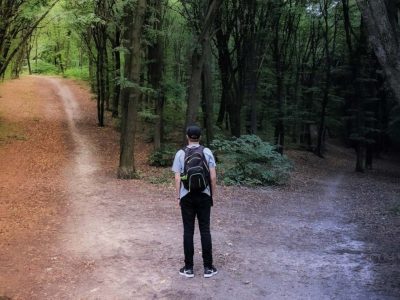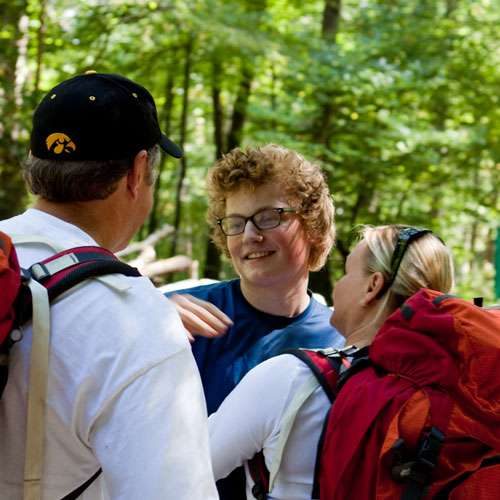When we are threatened, whether the threat is real or perceived, our body is ready to respond. The brain instructs the body to increase blood flow, escalate heart rate and calculate an exit strategy. Fear can take control of one’s life, especially for troubled youth with low self-esteem or who have trouble making friends.
Troubled youth and anxiety
Even for those without a diagnosable anxiety disorder, fear can keep a person from not getting the most out of life. It can keep teens from trying out for a sports team, making new friends, or standing up to peer pressure. Especially in the midst of life changes, such as parental divorce or moving from middle to high school, a fear of the unknown can cause adolescents to act out or engage in high-risk behaviors.
Helping teens gain control
A wilderness camp for troubled youth uses healthy risk-taking to challenge teens emotionally, mentally, and physically. When teens learn to embrace and overcome fears, they develop confidence and are able to take control of their lives. Every day during camp, teens are faced with both internal and external challenges from learning to communicate effectively with parents to completing a multi-day canoeing trip.
Being comfortable with uncomfortable
No matter if the obstacle is big or small, there is an opportunity to either succeed or fail. The fear of failure is what keeps most individuals from even trying. Yet, the only time you are able to grow is when pushed out from what seems comfortable.
“And only when you’re out of your comfort zone does your deepest strength emerge to help you survive a trying time.” – Dr. Carmen Harra
A wilderness camp for troubled youth teaches students to take risks without fear of failure.
Though they might fail the first time, continued perseverance and working toward a goal will help to ensure future success. Success or failure isn’t determined by what happened, but by what the teen learned from the experience.
Overcoming fears does not occur overnight. It would do more harm than good if we forced teens to face their fears without any direction or evolvement. Through group and individual therapy during wilderness camp for troubled youth, students slowly ease into overcoming fears. By starting with small fears, such as introducing yourself to new peers, and progressing to larger fears, such as leading the canoeing trip, teens can see their progress while not getting overwhelmed.
Providing a safe, supportive environment for teens to grow is our number one priority. To learn more about our wilderness camp for troubled youth, call Trails Carolina today at 800-975-7303.
Get started today
Contact us today to learn how Trails Carolina can help your family
Trails saved my daughter’s life. Amanda is an amazing human and a brilliant therapist. I am so grateful to her, Science Steve, and the other wonderful people who could reach my daughter at a time when I could not.
Margot Lowman August 2022
Great life changing experience for our son. After becoming addicted to gaming during covid he was very depressed. At Trails he experienced the wilderness, Science Steve, learning survival skills and top notch therapy and support etc… I highly recommend! This gave our son and our family a renewed family bond full of love and excitement about his bright future.
Winnifred Wilson July 2022
Outstanding clinical work and superb staff! There’s a great culture at this company and it shows with how they engage with families/clients.
Kristin Brace June 2022
Discover If Trails Is The Right Program For Your Child
Take our short online assessment and help us better understand how we can help your family.




